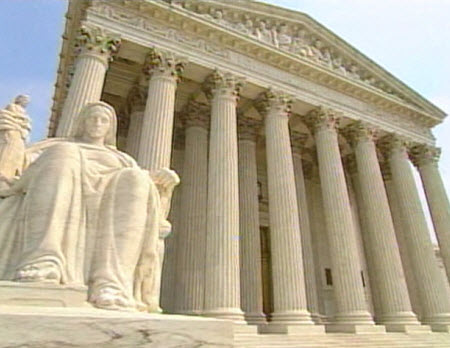High Court Could Aid FCC Title II Rollback
The smarter way to stay on top of the multichannel video marketplace. Sign up below.
You are now subscribed
Your newsletter sign-up was successful

WASHINGTON — Critics of Republican Federal Communications Commission chair Ajit Pai have been pressing him to commit fully and unequivocally to not regulating issues based on the content of speech. However, a supporter of his network neutrality stance is using that same argument to justify Pai’s planned rollback of Title II-based rules.
Specifically at issue is the Open Internet order’s allowance for one type of discrimination — family-friendly filtering — and not others. A Supreme Court ruling made since the order was adopted would appear to make that allowance an unconstitutional content-based restriction — difficult to justify in court.
After President Donald Trump tweeted his suggestion that news outlets running stories he didn’t like should perhaps have their licenses challenged and revoked, Congressional Democrats and media activist groups, joined by journalists and many others, were up in arms. The idea that the content of speech should determine its regulatory protection, or the lack of it, ruffled many a feather.
But Brent Skorup, a research fellow at George Mason University’s Mercatus Center, in a meeting with FCC officials earlier this month, said content-based regulation was just what the agency had attempted to do in the Open Internet order, and does not withstand the strict constitutional scrutiny such speech-based regulation demands.
The key is a 2015 U.S. Supreme Court ruling, Reed vs. Town of Gilbert, having to do with an ordinance that allowed for different treatment of signs — religious, political, directional — based on content.
The court concluded, “A law that is content-based on its face is subject to strict scrutiny regardless of the government’s benign motive,” in this case allowing for discrimination on the basis of family friendliness.
Skorup said he thinks the FCC’s 2015 Open Internet order, which treated ISPs as common carriers under Title II of the Communications Act , has a rocky First Amendment road. “The Supreme Court clarified its standard for what is content-based,” he said, “and I think the rules and the order discriminate against different types of content.”
Pai is crafting a rollback of the rules, and legal defense, likely for a vote in December. He almost certainly has the two other GOP votes to pass it. But a reversal of the previous FCC decision will be challenged in court, so the more ammunition the chairman has to support that course change, the better.
Regulatory agencies are free to amend their rulings, something obviously more likely to happen under a change in administration. But to survive legal challenge, the FCC must demonstrate that the change was not arbitrary and capricious, and that it was a reasonable decision based on the record, which is required whether it is an initial decision or a changed one.
A record that includes violating the First Amendment would be a strong legal card to have in reserve.
The smarter way to stay on top of the multichannel video marketplace. Sign up below.
Contributing editor John Eggerton has been an editor and/or writer on media regulation, legislation and policy for over four decades, including covering the FCC, FTC, Congress, the major media trade associations, and the federal courts. In addition to Multichannel News and Broadcasting + Cable, his work has appeared in Radio World, TV Technology, TV Fax, This Week in Consumer Electronics, Variety and the Encyclopedia Britannica.

